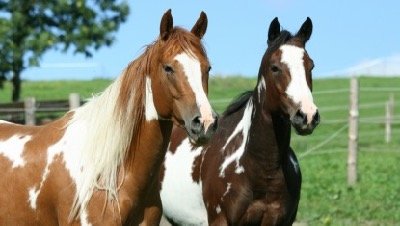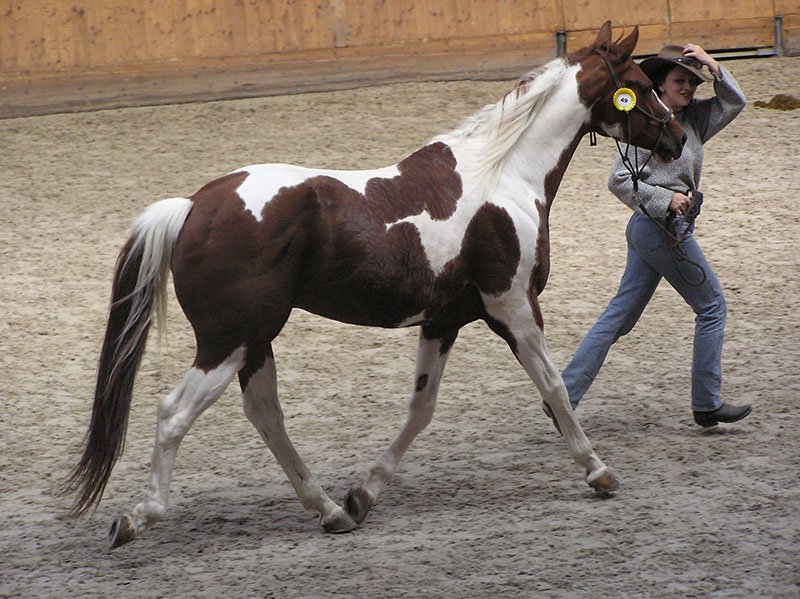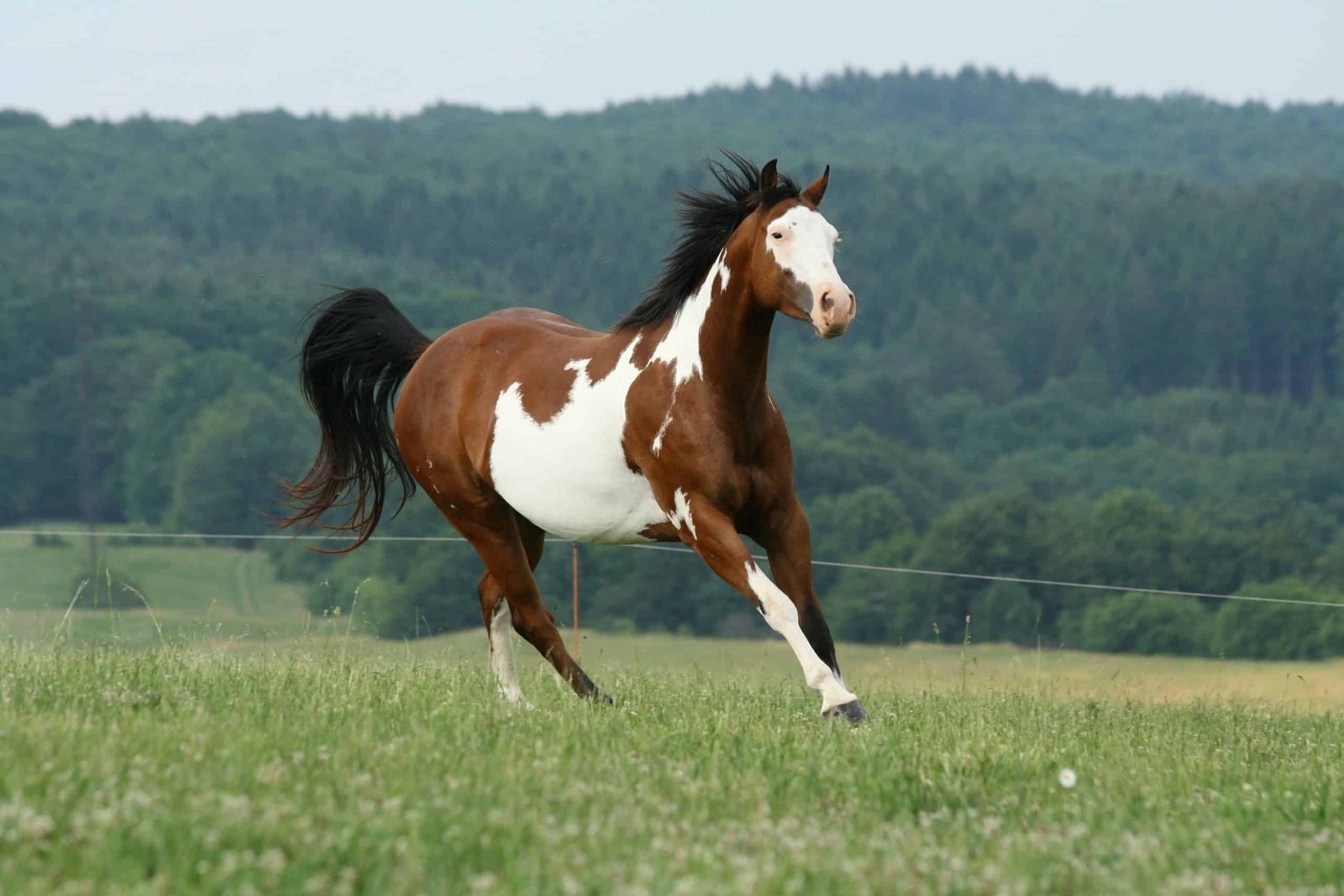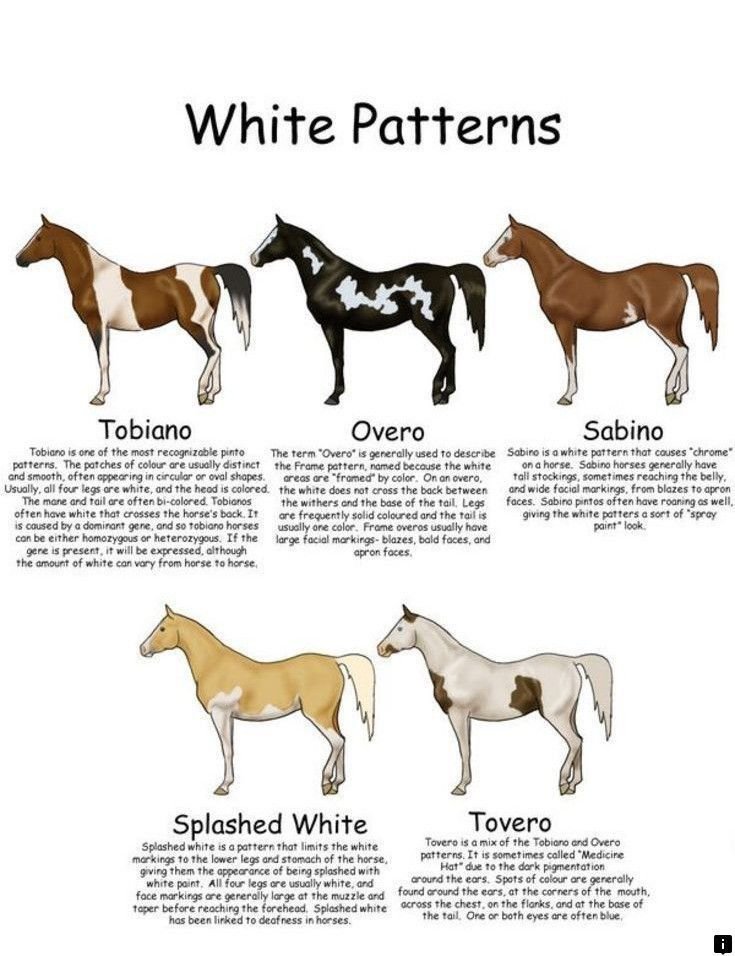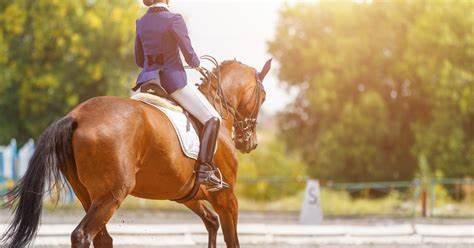Introduction: Paint Horses are well-loved for their stunning coat patterns and gentle, intelligent nature. As with any horse, maintaining their health and grooming them regularly is essential for their overall well-being. Paint Horses, with their vibrant coats and strong builds, require attentive care to ensure they stay healthy, happy, and fit for riding or work. This article will guide you through the essential grooming practices and health considerations needed to care for a Paint Horse properly.
1. Regular Grooming for Coat and Skin Health: Paint Horses are known for their distinctive and often beautiful coats, which require regular attention to maintain their shine and health. Daily grooming is crucial for removing dirt, debris, and loose hair, preventing skin irritations, and promoting blood circulation. Begin by brushing the horse with a curry comb, which helps lift dirt and stimulate the skin. Follow this with a stiff-bristled brush to smooth the coat and remove any remaining debris.
When grooming, pay special attention to areas where sweat accumulates, such as under the saddle and girth areas. Sweat and moisture can lead to skin infections or rubs, so regular cleaning in these areas is vital. If your Paint Horse has long manes and tails, detangle them gently with a wide-toothed comb to prevent matting.
2. Maintaining Hoof Health: The hooves are one of the most important aspects of horse health, and Paint Horses are no exception. Hoof care should be a top priority, as improper maintenance can lead to painful conditions like laminitis or abscesses. Paint Horses, with their often larger build, may be more prone to hoof issues, so regular attention is needed.
Work with a skilled farrier to ensure that your horse’s hooves are trimmed and balanced every 6–8 weeks. If your horse is shod, ensure the shoes fit properly and are maintained. After exercise, especially on rough terrain, check their hooves for rocks or debris that might cause injury. Regular hoof cleaning helps prevent infections and ensures the horse’s comfort during movement.
3. Skin Care and Coat Condition: Due to their unique coat patterns, Paint Horses require particular attention to their skin health. Horses with white markings or areas of lighter skin may be more prone to sunburn, so it’s essential to take measures to protect them from excessive sun exposure, especially during hot summer months. Use sun-protectant creams or blankets to shield their sensitive areas, such as around the face and legs.
In addition to sun protection, regular bathing can help maintain a healthy coat. However, avoid over-bathing, as this can strip natural oils from the coat and skin. A gentle equine shampoo designed for horses with sensitive skin is the best option. After bathing, ensure that the horse is thoroughly dried to prevent any cold-related illnesses.
4. Nutrition and Weight Management: Maintaining a balanced diet is critical to your Paint Horse’s health and appearance. A well-nourished horse is more likely to have a shiny coat, strong hooves, and overall good health. Their diet should include high-quality forage such as hay or grass, which provides the necessary fiber. Depending on their activity level, you may need to supplement their diet with grains to support their energy needs.
Be cautious of overfeeding, as obesity can lead to health issues such as joint stress, metabolic disorders, or laminitis. Regularly monitor your horse’s weight and adjust their feed as necessary. Providing access to clean, fresh water at all times is essential for digestion and overall well-being.
5. Regular Veterinary Care: Routine veterinary care is crucial for preventing and managing any health issues that may arise in your Paint Horse. Annual health checks can help identify potential problems early, allowing for more effective treatment. A vet will monitor the horse’s general health, including their teeth, joints, and respiratory system.
Your Paint Horse should also stay up to date with vaccinations, deworming treatments, and dental check-ups. Horses can develop dental issues, such as sharp points on their teeth, that can interfere with eating or cause pain. A veterinarian should check their teeth annually and address any necessary dental work.
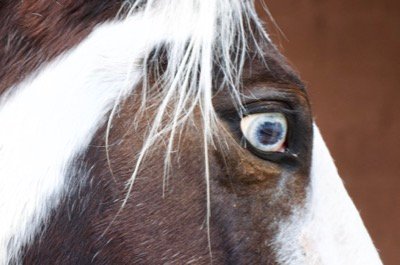
6. Exercise and Physical Fitness: While Paint Horses are known for their calm demeanor, they are still active and require regular exercise to maintain their physical and mental health. Regular exercise helps keep them fit, prevents obesity, and promotes healthy muscles and joints. The type and intensity of exercise will depend on the horse’s age, fitness level, and work.
Whether you use your Paint Horse for riding, work, or pleasure, ensure they receive appropriate physical activity. This can include groundwork, trail rides, or arena work. Be mindful not to overexert your horse, as this can lead to injuries or fatigue. Always warm up before exercising and cool down afterward to prevent strain on their muscles.
7. Managing Parasites and Fly Control: Parasite control is an essential aspect of caring for a Paint Horse. Internal parasites, such as worms, can affect a horse’s digestion and overall health. Regular deworming treatments, as recommended by your veterinarian, can help prevent these issues. A fecal egg count test can determine the need for deworming.
External parasites, like flies, mosquitoes, and ticks, can also cause discomfort and health problems. Use fly repellents and fly masks to protect your horse from biting insects. Additionally, consider using fly sheets or fly boots if your Paint Horse is particularly sensitive to insect bites.
8. Providing a Safe and Comfortable Environment: The living environment plays a significant role in the health of your Paint Horse. Ensure that your horse has access to a clean, dry, and spacious stall or paddock. The stall should be free of sharp objects or hazards that could cause injury. Bedding should be clean and changed regularly to prevent respiratory issues or infections.
If your horse spends time in a pasture, ensure the fencing is secure and free of gaps that could pose a risk. Paint Horses enjoy socializing, so if possible, consider housing them with other horses to provide mental stimulation and companionship.
Conclusion: Caring for a Paint Horse requires a commitment to their grooming, health, and overall well-being. Regular grooming, hoof care, a balanced diet, and consistent veterinary attention are all vital components in ensuring your Paint Horse leads a happy, healthy life. By focusing on their physical and mental needs, you can foster a strong bond and enjoy the companionship and beauty of these magnificent animals for years to come.







